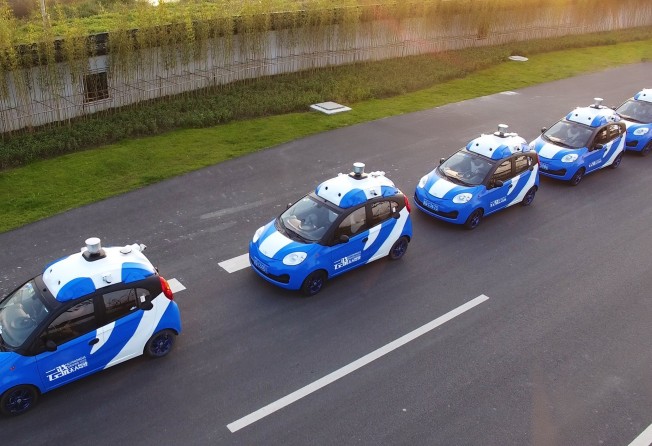‘China’s Google’ says government support and population size matters in global AI race
Baidu says that China is closing gap with US rapidly in artificial intelligence, thanks to strong government support and China’s huge population size, key ingredients in promoting the development of AI. The company unveiled its Apollo 2.0 autonomous driving platform at the CES trade show in Las Vegas.

China is catching up to the US in the race to develop artificial intelligence (AI), driven by the country’s population size and strong government support, according to Baidu Inc.
“The US is still by far the best in terms of top-tier talent, but China is closing the gap fast,” Lu Qi, Baidu vice-chairman and chief operating officer, said at the CES technology trade show in Las Vegas, describing Baidu as “China’s Google.” “To drive innovation requires infrastructure and a friendly policy environment..policy innovation is just as important as technology innovation. They go hand in hand, they must be in unison.”
The growing prevalence of AI in everyday life, from YouTube recommending videos based on one’s viewing history to increasingly autonomous driving cars, has sparked a debate on the government’s role in regulating and promoting its development. In China, as is elsewhere, consumers are also increasingly vocal about the security and ownership of their personal data.
With its 1.38 billion people, more than a billion smartphones in usage and 750 million internet users, China has “more data for people to try new ideas,” Lu said.
Baidu was sued by a Chinese consumer group, which accused the Beijing-based company of snooping on users of its mobile apps. Baidu said it does not monitor the phone calls of its users.
Alibaba Group Holding, which owns the South China Morning Post, and Tencent Holdings had to clarify to the public how they handled their information after they came under fire for the way they handle or gain users’ data.
China has included the development of AI in its five-year plan, a government road map that sets out the economic and policy priorities for support. Among its many initiatives is a project to build a smart and connected city essentially from scratch that will serve as a model for other metropolitan areas in China. That city, called Xiongan, signed a strategic partnership with Baidu last year.
At CES, Nasdaq-listed Baidu unveiled a new US$200 million fund with Singapore’s Asia Mobility Industries and a joint venture to invest in technology and research, the first overseas expansion of the self-driving platform. The company also introduced a smart speaker, voice-enabled smart lamp and voice-enabled dome speaker running on its DuerOS system.
Lu unveiled the latest version of the company’s autonomous driving Apollo platform, named after the US space flight programme that landed the first humans on the moon. The company also paraded a string of autonomous driving vehicles, from a microbus and self-piloting sedan to a road-sweeper and delivery robot via a live link to its campus in Beijing.
Through a partnership with Apollo, Chinese carmakers JAC and BAIC Motor will start volume production of so-called Level 4 autonomous cars in 2019, and Cherry in 2020, according to Lu. That would put them in line with, if not ahead, of most international carmakers. Baidu also plans to roll out self-driving buses produced by King Long later this year.
By comparison, Honda Motor, the Japanese carmaker, is targeting Level Four autonomy, which allows vehicles to drive themselves under most circumstances, by 2025.
Baidu, part of a group of hi-tech companies tasked by the Chinese government to lead artificial intelligence (AI) development in the country, is launching the new software weeks after suing its former autonomous driving chief.
China’s government has played an active role in developing policies to support the development of advanced computing technologies such as AI. The National Development and Reform Commission, China’s top economic planning agency, has set a target to accelerate the building of a nationwide visual mapping database, which is needed to power the development of smart cars.
As part of a three-year industry plan released by the commission, the government will prioritise the development of sensing and positioning technologies required for self-driving vehicles, backed by China’s own Beidou satellite navigation system.
The plan also called for the mass adoption of advanced driver assistance systems – a collective term for functions such as cruise control and collision avoidance, and identified places such as airports, industrial estates, mines and selected cities to roll out these smart vehicles.
“Apollo is an example of ‘China Speed’, demonstrating the rapid pace of China’s innovations and development in the global autonomous driving industry,” Lu said. “AI and innovation are borderless. We’re facing a historic moment with immense opportunities for people around the world, which requires big countries and great enterprises, including China and Baidu, to lead and explore together.”